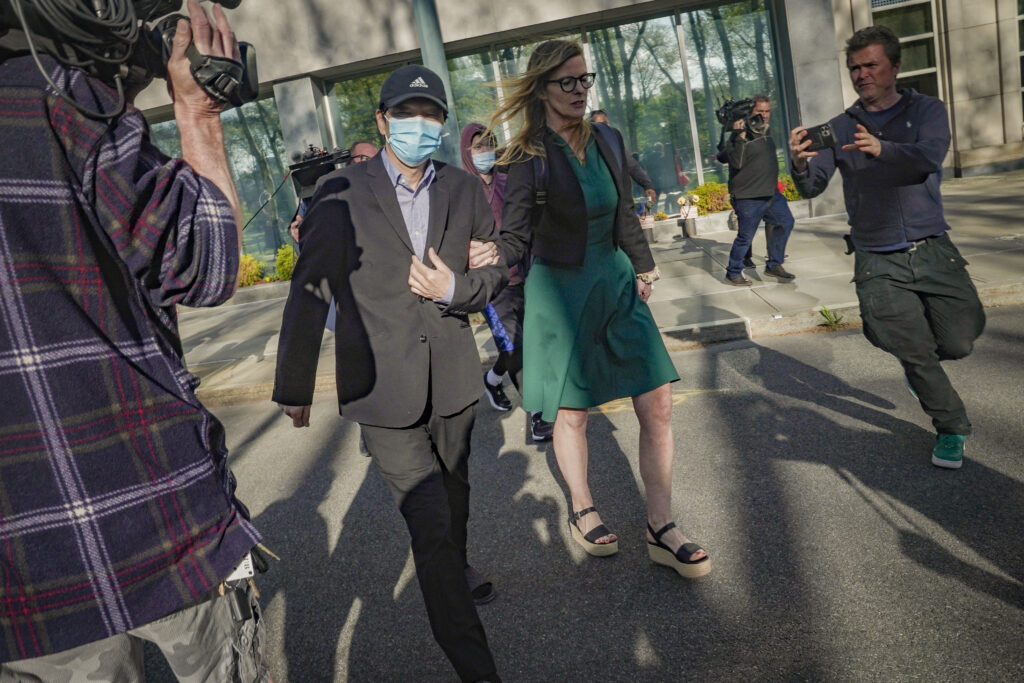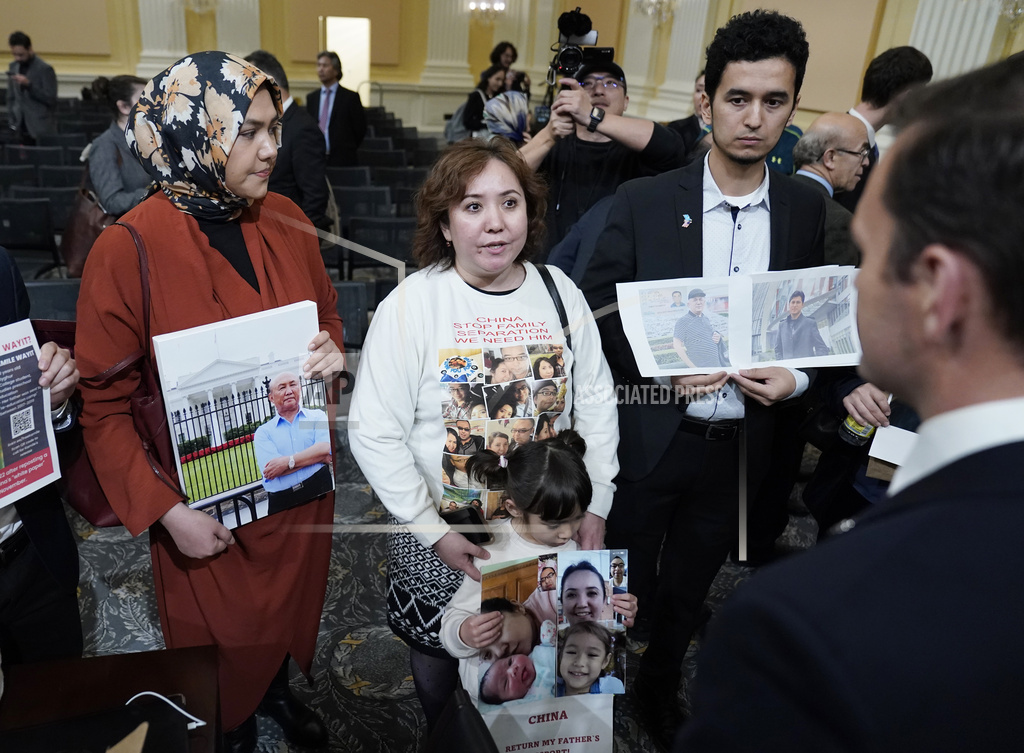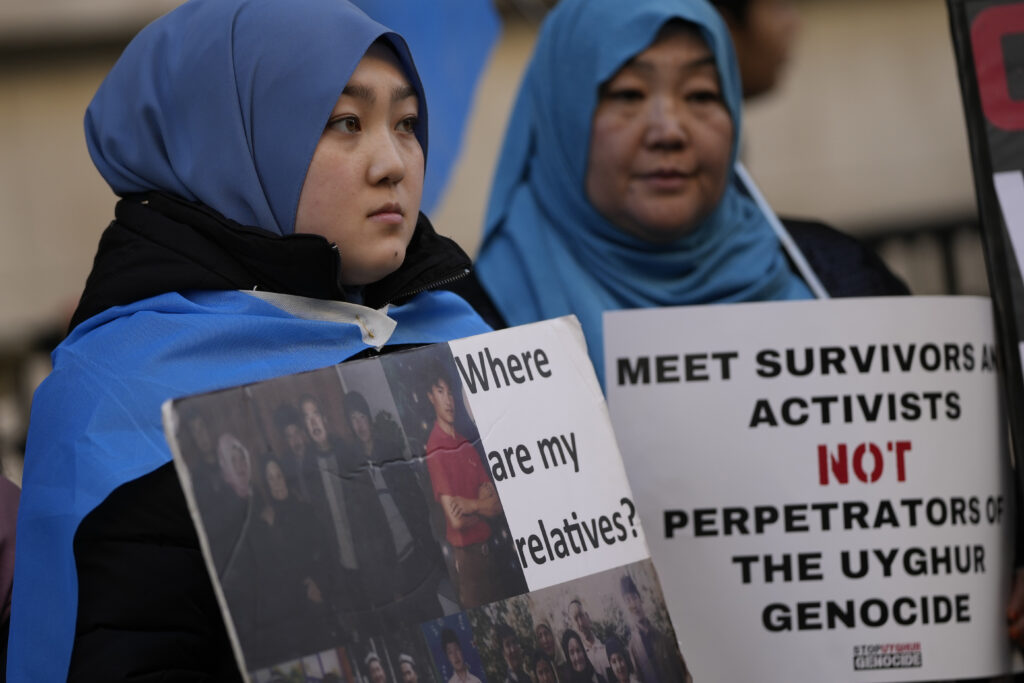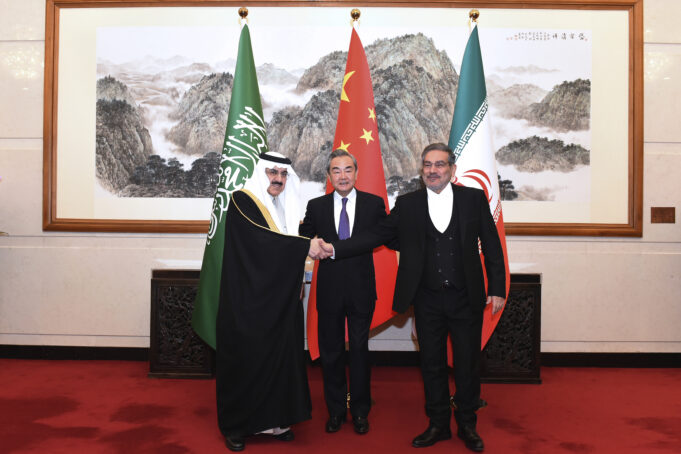The ethnic Uyghurs in China are still at the intersection of politics, culture and religion. This group and other Muslim minorities located in China’s Xinjiang region are experiencing what the United Nations High Commissioner for Human Rights called “crimes against humanity”in a recent report. Nearly 11 million Uyghurs live in Xinjiang with a distinct culture, language and are a predominantly Muslim Turkic ethnic group.
Human rights advocates accuse China of ongoing injustices perpetrated against Uyghurs and in another recent report, the treatment of Uyghurs in a detention center in Thailand has come into question.
China’s long arm of the law has been accused of harassing and surveilling Uyghurs in other countries, according to the new report, “We Know You Better Than You Know Yourself: China’s Transnational Repression of the Uyghur Diaspora.”
When Aynür received a call from a Chinese police officer ordering her to spy on the social activities of her Uyghur friends in Turkey, she offered to answer questions about herself but firmly stated, “I cannot report on others,” the report notes.

The officer responded, “China is getting stronger and we know you better than you know yourself.” He let her know that even though she was a Turkish citizen, living in Istanbul, thousands of miles from China, she was under constant watch by the People’s Republic of China (PRC).
The report’s authors, David Tobin, a lecturer in East Asian Studies at the University of Sheffield, and Nyrola Elima, an independent researcher, presented their findings at a recent press event organized by the Washington-based Uyghur Human Rights Project. Their research focuses on China’s reported transnational repression of the Uyghur diaspora in Britain, Turkey and Thailand.
“Although she is a Turkish citizen living in Istanbul, thousands of miles from her homeland, she was under constant surveillance and always governed by the party-state,” said Mr. Tobin.
Escaping China is hard enough for some Muslim Uyghurs. Families may think they have escaped but research shows that even when Uyghurs leave China, repression continues in many countries around the world. The scale of transnational repression in the Uyghur diaspora is universal, and its impact severely restricts their rights to free speech and associations, and the capacity to maintain their culture, the report notes.
China has denied all claims of transnational repression even though two New York residents were arrested by the FBI on suspicion of operating a “secret police station” in Manhattan’s Chinatown on behalf of Beijing, federal prosecutors announced in early April.

Beijing vows to retaliate if the U.S. continues with prosecution against the men arrested. The U.S. Department of Justice also charged 44 suspects, including 40 police officers who remain at large. All the suspects are accused of targeting and intimidating Chinese dissidents in the U.S.
Mao Ning, a spokeswoman for the Chinese foreign ministry, told the media that the U.S. was “countering basic facts, professional conduct, and the spirit of the rule of law, and is weaponizing and politicizing the law.”
She added: “We urge the U.S. to immediately stop taking the wrong approach, and if the U.S. is bent on going its own way, China will resolutely take countermeasures.”
The report found that since 2017, “China increased use of Uyghur informants to gather intelligence while backing off from harassing those who resist pressure. These tactics have evolved to avoid international attention by harassing isolated individuals, placing community figures under surveillance, quietly intimidating Uyghurs from speaking publicly and even enlisting them to create positive images of China.”
2017 is also the year, Beijing was first accused of detaining more than one million Uyghurs and other Turkic Muslims in Xinjiang. The U.S. and other countries around the world have accused Beijing of perpetrating genocide or crimes against humanity. The U.N. has reported the existence of significant evidence of mistreatment in the region, which may constitute “crimes against humanity.”

In the report, China defends its position, explaining its approach to “international relations is guided by principles of state sovereignty and noninterference, in practice, Chinese authorities consider all citizens, former citizens and their family members, regardless of where they are living in the world, to be under Beijing’s legal and moral jurisdiction.”
The issue reached the U.S. Senate and in March a bipartisan bill, the Transnational Repression Policy Act, was introduced by Senators Jeff Merkley (D-Oregon), Marco Rubio (R-Fla.), Ben Cardin (D-Md.), and Bill Hagerty (R–Tenn.). The bill’s goal is to hold foreign governments and individuals accountable when they engage in acts of transnational repression in the United States or toward U.S. citizens abroad.
“While Uyghurs in Xinjiang continue to face the Chinese Communist Party’s genocidal campaign, exiles from the Uyghur, Tibetan, Falun Gong, Christian and Hong Kong communities, who have come to our nation for protection, are now targets of transnational repression,” said Senator Rubio.
The legislation was welcomed by the Uyghur Human Rights Project to make transnational repression a key U.S. foreign policy priority and to hold perpetrators accountable.
“This bill represents a critical first step to tackle what Uyghurs have faced for years after fleeing repression in China,” said Omer Kanat, UHRP executive director. “UHRP has worked hard to identify many of the threats from the Chinese government so that the international community can finally address it in an effective way.”
According to The World Uyghur Congress and the Uyghur Human Rights Project, there are also problems in Thailand. The report of a recent death of a Uyghur refugee in a detention camp in the country is concerning the groups reported in an April 24 press statement.
“Mattohti Mattursun (Muhammad Tursun), was (a) Uyghur refugee who had been in Thai detention for over nine years, since March 13, 2014, and passed away on April 21. He was 40 years old died of suspected liver failure and is family’s whereabouts are unknown,” the statement noted.
He was one of almost 50 Uyghur detainees, most of whom are being held at IDC Suan Phlu, the Bangkok Immigration detention center and was the second Uyghur refugee from this group to die in the last two months, reported The World Uyghur Congress and the Uyghur Human Rights Project.
“Mattohti Mattursun arrived in Thailand in 2014 as one of 350 Uyghur men, women, and children who, when fleeing China, were arrested and detained by the Thai authorities. In July 2015, at least 170 women and children were transferred to Turkey. Some weeks later, 109 men and women were deported to China. No further information on their treatment or whereabouts is available,” the groups stated.
“How many more deaths will take place before Thai authorities act with humanity to release these innocent people who are merely seeking safe haven?” said UHRP Executive Director Omer Kanat. “Uyghurs around the world are filled with anguish that these refugees have been left in misery for nine years and the world has not lifted a finger to rescue them,” he said.
China has also pushed back on the U.S. when it comes to the topic of human rights. Earlier this year China’s State Council Information Office released its own report on U.S. human rights violations, titled, “The Report on Human Rights Violations in the United States in 2022.”
China accused the U.S. of “wanton violation of other countries’ human rights and trampling on justice.”
“The year 2022 witnessed a landmark setback for U.S. human rights. In the United States, a country labeling itself a ‘human rights defender,’ ‘chronic diseases’ such as money politics, racial discrimination, gun and police violence, and wealth polarization are rampant. Human rights legislation and justice have seen an extreme retrogression, further undermining the basic rights and freedoms of the American people,” the report notes.
Dr. Aminah Al Deen, Chair Emeritus of DePaul’s Islamic Studies Department told The Final Call that the Uyghur situation in China is dire. “We know that folks have been forcibly removed, and put into reeducation camps. We know what that means. The object is to get you away from Islam,” she said.
“The U.S. is on every front possible pushing for a confrontation with China,” she said. “This story of the Chinese spies in New York, it’s crazy. To do what? I’m sure that they could do something. But the other side of that story is all of the spies that the U.S. has put in China. The U.S. propaganda machine is working. Probably the engine is smoking by now, and on the other side, their propagation is smoking too. As Muslims, we have to sit back and hear as best we can through the propaganda, some middle ground to ascertain what is going on,” she said.
Some observers may view the Uyghur’s issue as complicated by China’s recent diplomacy measures it brokered between Iran and Saudi Arabia. The two Muslim nations have been arch-rivals for decades. Enter China’s President Xi Jinping and after hours of negotiations, an agreement was signed to resume diplomatic ties between the Middle East powerhouses.
Over the years the Honorable Minister Louis Farrakhan of the Nation of Islam has spoken directly about the persecution of Uyghurs and other Muslims and non-Muslims around the world.
He has also spoken on the great need for unity among the people and the accountability among the leaders of nations to treat their citizens right.
Recently, the Minister thanked President Xi Jinping for his efforts. “Because Allah gives us a command that weare supposed to, when we quarrel, ‘make peace between the brothers’—but we didn’t do it! So, President Xi came, and brought Iran and Saudi Arabia to China, and brokered a peace deal between two brothers. Thank you, Pres. Xi. And you know what he did? He rescued Saudi Arabia from the web of American so-called guidance and diplomacy.
He freed you, that you could come out of that sphere, and come out of the sphere of anyone other than the Sphere of Allah and His prophet. So now, there is peace coming in Syria. Peace is coming to Yemen. They’re fighting; I hope you will make peace with each other, between Qatar and the United Arab Emirates.
Encourage President Xi to be kind to the Muslims under his charge,” Minister Farrakhan stated during “The Ummah Reflects” podcast, which was livestreamed via the Podbean app on April 21 which marked the last day of the Holy Month of Ramadan observance for Muslims in the United States.
“And lastly, remember Genghis Khan. The Khans came out of Mongolia, and they were like a scourge; they beat up Christians, they beat Muslims, they beat Jews—and Allah permitted it. Because when we deviate from what is right, what God has laid down in the scripture for us, we deserve a whooping. So, after Genghis Khan beat the Jews, the Christians, and the Muslims, he became a Muslim. Think about that. I hope that’s the future of President Xi,” the Minister stated.
Final Call staff contributed to this report.













